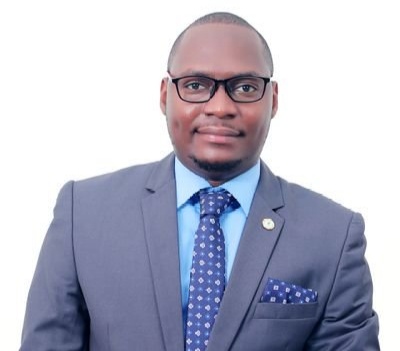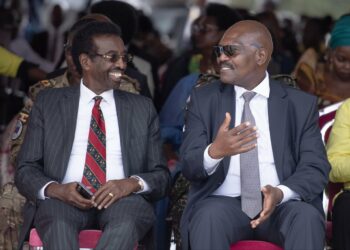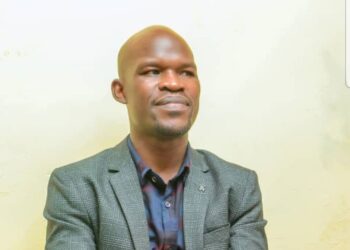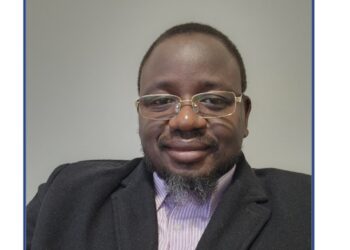As Uganda commemorates 63 years of independence and three decades since the enactment of the 1995 Constitution, it is imperative to reflect on whether we have fulfilled the aspirations of freedom, dignity, and justice that our forebears fought for. Independence was intended to restore self-rule, while the Constitution was designed to entrench democracy and uphold the rule of law. Today, however, both ideals appear compromised.
The 1995 Constitution was celebrated as a charter of the people intended to curb the abuses that once led our country into despotism. It pledged that power would reside with the citizens and that governance would operate within defined constitutional boundaries. Yet, over the years, this document has been manipulated to serve individual ambitions. The scrapping of presidential term limits in 2005 and the removal of the age limit in 2017 with violent scenes in parliament perpetrated by the security agents marked the erosion of constitutionalism and the entrenchment of personalized governance.
Increasingly, presidential directives have supplanted constitutional procedures. Decisions on appointments, prosecutions, and administration are frequently influenced by communications from State House rather than by institutions acting within their legal mandates. The Constitution, once the highest law, now plays second fiddle to political expediency.
Equally troubling is the failure to disseminate and educate the public about the Constitution, as stipulated in Article 4, which obliges the State to foster constitutional awareness and translate it into local languages. Thirty years on, translations exist in only about 15 of Uganda’s 45 native languages. Political education and civics have been removed from schools, and the Constitution is absent from the national syllabus. As a result, generations of Ugandans have grown up unaware of their entitlements and duties. This neglect is deliberate as it serves those who benefit from public ignorance. It had to take us to file a case in the High Court (Civil suit no.297 of 2019) in which we challenge the government’s failure to teach, translate and disseminate the constitution. As the case still proceeds, how many of you have received a constitution in your local language? How many Ugandans are braced with the content of the constitution? Isn’t it shameful that 30 years down the road, our constitution is not on the national teaching curriculum and syllabus?
Uganda has meanwhile evolved into a militarized democracy. The army, once tasked with defending national sovereignty, is now deeply entrenched in civilian and political affairs. Military personnel lead civilian institutions, occupy seats in Parliament, and shape governance. Security agencies dominate electoral processes, law enforcement, and even local governance. The police, instead of serving the public, often act as instruments of political control. Abductions using “drones,” arbitrary detentions, and imprisonment without trial have become routine. Up to now, the many Ugandans that disappeared have not been accounted for, Sam Mugumya, who disappeared on 26 August 2025 has not been found despite harbeaus corpus applications and orders in court. The abduction has even expanded to foreign nations, with Kenyan Bob Njagi and Nicholas Oyoo being the latest victims. Who is abducting the people while undermining Article 23, which guarantees personal liberty and due process?
Institutions meant to uphold checks and balances have been compromised. Parliament frequently functions as an arm of the Executive, approving budgets and legislation without meaningful scrutiny. The Judiciary, under-resourced and overwhelmed, struggles to maintain its independence while many constitutional commissions remain largely ineffective due to patronage and deliberate underfunding. Institutional allegiance has shifted from constitutional principles to those in authority.
A culture of impunity now prevails. Corruption flourishes at the highest echelons while accountability is applied selectively. Scandals such as iron sheets, COVID-19 funds have had substantive repercussions. Those implicated are shielded or quietly reassigned, while ordinary citizens endure harsh penalties for minor infractions.
Simultaneously, poverty continues to escalate. More than 30% of Ugandans live below the poverty threshold, lacking access to adequate healthcare, education, and infrastructure. Public debt has reached alarming levels, and service delivery is deteriorating. Across the nation, potholes, dark streets, understaffed clinics, and collapsing schools reflect poor leadership and misplaced priorities. Independence was supposed to usher in prosperity and dignity, yet many Ugandans remain ensnared in hardship and hopelessness.
Three decades on, our Constitution ought to have matured into a robust safeguard defending rights, promoting equality, and ensuring justice. Instead, it has been distorted to serve the powerful. The same Constitution that enshrines freedom of speech is wielded to suppress dissent. The same document that guarantees equal treatment under the law is applied unevenly.
Uganda at 63 should prompt introspection, not festivity. We must question whether this is the country we aspired to build a nation where the military dominates politics, laws bend to suit power, and justice is a privilege rather than a right. We must revive the essence of constitutionalism: where leaders are accountable, institutions serve the populace, and power is exercised with humility.
Our struggles for liberation from colonialism to autocracy—were never meant to substitute one form of oppression with another. Genuine independence demands freedom rooted in justice, equality, and respect for the rule of law. At 63 years of independence and 30 years of constitutional governance, Uganda must strive for better. Until then, our national anniversaries will remain ceremonial dates, not true markers of liberty.
Do you have a story in your community or an opinion to share with us: Email us at editorial@watchdoguganda.com














